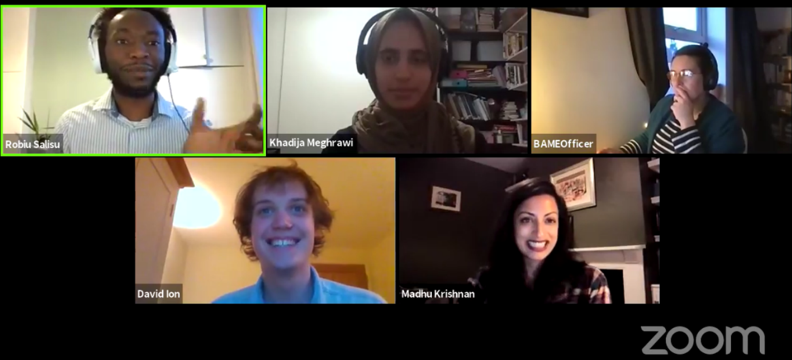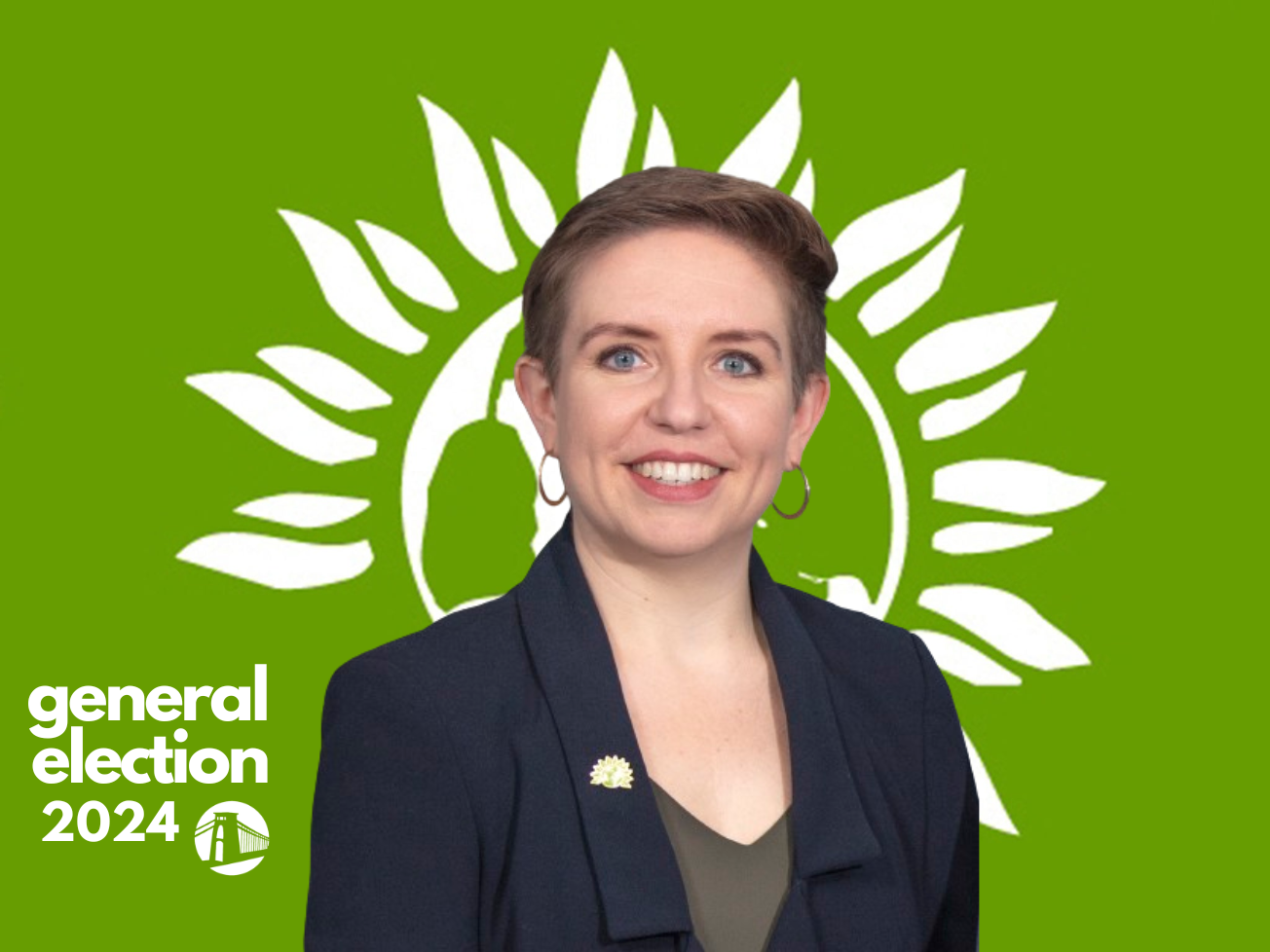By Tia Bahia, BAME Affairs Correspondent
The third Anti-Racism webinar in the four-part series organised by the University of Bristol Anti-Racism Steering Group, in collaboration with Epigram and the BAME Network, took place on 18 February.
Guest speakers to the event included Alvin Birdi, Associate Pro-Vice Chancellor in Education, Professor Madhu Krishnan from the English Department and David Ion, the Student Union’s Undergraduate Education Officer, all being asked to give their input about decolonising the curriculum.
Co-chaired by Robiu Salisu, Student Inclusion officer and Khadija Meghrawi, Chair of the BAME Network, the event followed a now familiar format with some short introductions and opening presentations from the panel. David Ion began by describing his role at the SU and commenting on his efforts to contribute to the ongoing work that his predecessors paved the way for he said ‘We are standing on the shoulders of students and staff before us’.
Professor Madhu Krishnan gave an introduction and explained that without decolonisation of the curriculum, students are not presented with a full and rounded picture. She said ‘It is important that we use whatever privileges and platforms we have to amplify the voices of populations of individuals that have historically been less visible or marginalised’, she added ‘ As an educator I firmly believe that a decolonised curriculum is a robust curriculum’.
Alvin Birdi was next to present; he briefly discussed the work being undertaken by the Anti-Racism steering group and highlighted the University’s Futurelearn course as some of the initiatives in place to aid with decolonising the curriculum. Alvin continued by analysing what the term ‘curriculum’ actually means and said it should be considered in a range of senses including the structure and content of a module, the student’s experience of learning and as a dynamic and interactive process.
The webinar then entered the question and answer portion in which Robiu posed the first pre-submitted question to Professor Madhu Krishnan: ‘How do you assess whether or not something is successfully decolonised and can this be done in a colonial space?’. Professor Krishnan acknowledged this is a difficult question, she said ‘ I do not think you can say a curriculum has been successfully decolonised in the sense that it has to be an ongoing process’. Addressing the second part of the question she added ‘An institution like a university can not seriously engage in decolonial work without engaging beyond the institution itself’.
'There is no freedom that is not mediated ... our freedom is always constrained simply by virtue by living in a society' - @ProfMadhuK adds, saying that whilst academic freedom is of course important, the free speech argument is a 'straw man argument'
— Epigram (@EpigramPaper) February 18, 2021
The next question was seeking response to the concerns of some that believe decolonisation issues are a threat to academic freedom; Khadija highlighted the relevance of this question in the current climate in particular, referring to the recent campaign by Bristol Islamic Society concerning multiple complaints against Professor Steven Greer of Bristol’s Law School for his reported use of discriminatory remarks and Islamophobic rhetoric. Professor Krishnan said ‘Whenever I hear the phrase free speech, I have two questions, free from what? and free for whom?’; she expressed her strong belief in academic freedom but that there is no freedom that is not mediated and continued ‘Our freedom is always already constrained simply by virtue of existing in a society’.
Alvin Birdi spoke on how the University can ensure it builds on the work done before to decolonise the curriculum and how to move towards action, commenting ‘We do need some degree of institutionalisation in the sense that this has got to be embedded if we want it to work’ …’ We do need the institution to buy into it’. David Ion added ‘There needs to be a commitment from the University as ultimately, they have the resources’. He highlighted the importance of organisations such as ‘Decolonise UoB’, which are independent from the University , making them appropriate to look critically at the university process.
Practically, what does decolonising look like? Alvin says that the process will include looking at the provenance and origins of the content taught, the students' pedagogical experience and the need to make space in the curriculum to allow these changes to take place
— Epigram (@EpigramPaper) February 18, 2021
David and Alvin were also asked to give their thoughts on the recent statement by the Equalities Minister Kemmi Badenoch who suggested decolonisation is going too far. Alvin Birdi stated: ‘I think what Kemmi Badenoch is saying is the opposite of what is true’…’The idea that decolonisation does not play into education is the opposite of the truth’. David Ion said ‘My initial response would be asking why she is the Equalities Minister’; he added that lack of decolonisation downplays the extent to which racist mindsets have permeated many subjects beyond just the humanities, with other disciplines implicated which are not typically thought of being associated with the issue, such as Medicine.
After further discussion on what decolonisation looks like practically, Robiu posed a question from the audience as to how potentially upsetting information for BAME students can be taught without triggering those students. David Ion gave his insight here, suggesting that staff members ‘be open and honest about what the content you are discussing is going to entail’ and prepare students for language or imagery that will be used to ‘reduce the shock factor’.
Appeal launched by society over claims of islamophobia
Anti-Racism Webinar Series – BAME Attainment Gap and Racial Diversity in the student body
Epigram’s Deputy Digital Editor Siavash Minoukadeh rounded up the event with the student perspective and praised the insightful points discussed throughout the evening with the panel putting emphasis on a range of disciplines, not just the humanities, as well as touching on the timely topic of free speech. Siavash said ‘Beyond your school or faculty you don’t really have much contact with people as a student, so it is really great to hear directly from the people doing the work’.
The final Anti-Racism webinar will take place on Thursday 25 February and will discuss Racial Abuse and Microaggressions on campus. Guest speakers include Julio Mkok, Bristol SU Union Affairs Officer as well as Professor Sarah Purdy, Pro-Vice Chancellor for Student Experience.
Featured Image: Courtesy of webinar organisers
To register for the final webinar and to submit your questions, please use the link, HERE.








